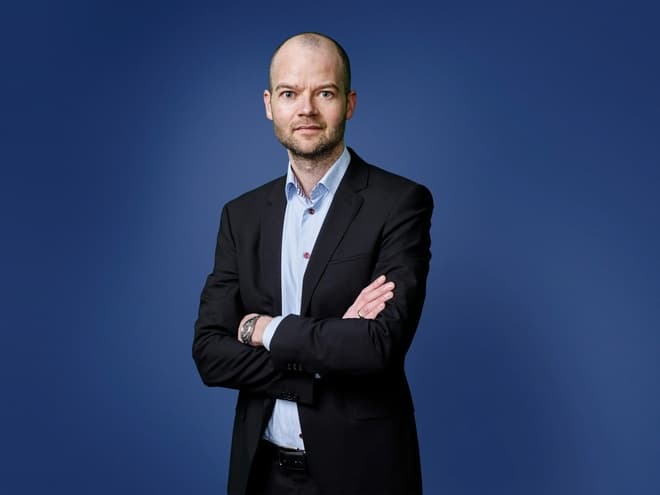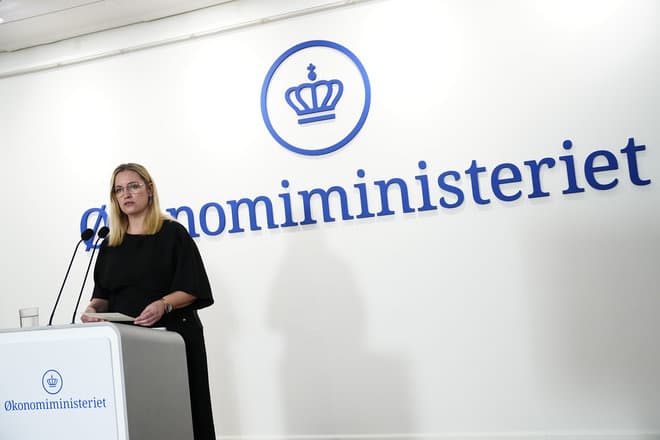Interest in learning to speak and write foreign languages is declining. Fewer people in high school are choosing high-level language subjects, and at universities the number of students studying language subjects such as German, French and Chinese is falling. This is happening at the same time that exports to countries such as Germany, France and China are increasing, with a need for workers who speak the language and understand the culture.
This development is frowned upon at universities, in business and among trade unions. Among others at the Danish Association of Masters in Education (DM).
- Denmark is a small economy that is dependent on trade with the outside world. Therefore, it is very worrying that we could end up in a situation with a shortage of language-trained workers, says Cathrine Holm-Nielsen, head of DM Communication, adding:
- If we fall behind in language and cultural understanding, Danish companies will lose competitiveness.
A statement from the association shows that the number of students studying German and French at universities has fallen by 29 percent. from 2020 to 2023. And in Chinese, the total admissions at the Universities of Copenhagen and Aarhus have fallen from 68 students in 2021 to 29 in 2024.
There are several explanations for the development, says Maja Horst, dean of Arts at Aarhus University. The faculty includes the humanities, theology and educational sciences. In particular, it plays a role in the fact that for a number of years there has been a tendency to believe that if you just knew English, you didn't need to learn other languages, she says.
- This has meant that fewer people in upper secondary education choose languages at a high level. This has reduced the food chain to university education.
Recently, Aarhus University has stopped admitting students in Indian and Brazilian, as interest in those subjects is too low. Danish companies are primarily looking for employees who can speak English. But many also point to German and French, says Mikkel Haarder, head of research and higher education at the Confederation of Danish Industries (DI). That need will not diminish in the future, even though the US remains the largest trading partner.
- I don't think anyone doubts that our European market is really important. It's not because the US is unimportant tomorrow, but the European market will increase, says Mikkel Harder.
Both he and Maja Horst emphasize that it is important that more people receive education that combines languages with other subjects, for example technical or economic subjects.
- But it is also important that we educate in languages so that there are teachers to teach at upper secondary schools and at universities, says Mikkel Haarder.
If the goals are to be met, universities must be given more money to upgrade language subjects with more hours and more teachers, says Maja Horst. This will make the studies more attractive, so that more people apply, and it will reduce dropouts.
- But there is no single solution to the problem. It is a combination of different aspects of teaching, for example new technology such as artificial intelligence.
The Danish Association of Masters Degrees agrees with this:
- It costs something to create good language education programs that people want to apply for and be a part of. Therefore, from a political perspective, the finances of the universities' language education should be strengthened, says chairperson Cathrine Holm-Nielsen.
KE Fibertech in Vejen is among the companies that need employees with language skills. The company sells to Germany, among other countries. CEO Carsten Jespersen, however, finds that it has become easier to collaborate, even though his German is not at its best.
- The Germans speak better English than they did before, and they have also gained a greater understanding that the language can be difficult for others.
jel /ritzau/
Text, graphics, images, sound, and other content on this website are protected under copyright law. DK Medier reserves all rights to the content, including the right to exploit the content for the purpose of text and data mining, cf. Section 11b of the Copyright Act and Article 4 of the DSM Directive.
Customers with IP agreements/major customer agreements may only share Danish Offshore Industry articles internally for the purpose of handling specific cases. Sharing in connection with specific cases refers to journaling, archiving, or similar uses.
Customers with a personal subscription/login may not share Danish Offshore Industry articles with individuals who do not themselves have a personal subscription to Danish Offshore Industry.
Any deviation from the above requires written consent from DK Medier.


























